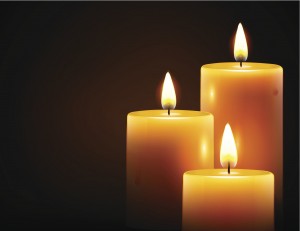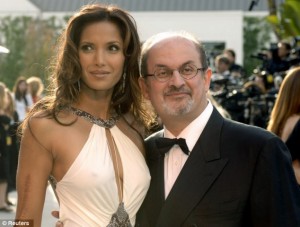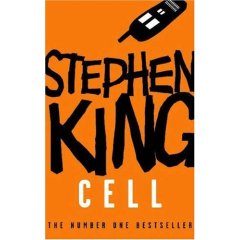Thanks to the Princess of Quitealot, I just rediscovered a favourite column that I thought I’d lost track of. It came just in time, because here in Ottawa, the city is going through its annual budget wrangle, this time under the leadership of a Mayor who promised to ban tax increases. Meanwhile, the dollar buys less and many fine social programs are on the chopping block, not to mention the rising costs of policing and an aging infrastructure that, like every city, Ottawa has in abundance and will someday have to pay for…
It all has me muttering about politicians, particularly the stripe whose popularity is mainly based on an appeal to our greed and sense of entitlement. You worked hard for that money and if you elect us we’re going to put an insignificant but apparently sweet portion of it back in your pocket. After all, why should you care about anyone else? Besides, government stinks, and that’s why I’m running for it. Um, so it’ll, ah, stink lots less or something. Drives me nuts, but I know who they’re talking to. There’s no shortage of folks complaining about having to pay taxes. I’ve heard so much grousing about not getting anything from all the taxes we pay, and I don’t even get out of the house that much.
Anyhow, my bride found me exactly what I was looking for, an answer to all those death-and-taxes and woe-is-me whiners. I’m with the hard-working immigrant Canadian – he was an entrepreneur, and good at it – who told me, “Hey, if I’m paying taxes, that means I’m making some money. And it also means that I can give something back to a country that has given me so much.” You go, guy. The rant in question came from a 2004 article by Heather Mallick in the Globe and Mail. (And where have you gone, Ms. Mallick?* I couldn’t always agree with her, but she was opinionated and strong and often funny. She likely still is.)
She argues that taxes are the price we pay for civilization, and that we should consider that price a privilege; after all, the opposite of civilization is no picnic. Here’s part of what Mallick wrote in 2004, seeing the effect that Stephen Harper was beginning to have on Canadian popular thought. (Mr. Harper had become Conservative Party leader after having led the anti-taxation National Citizens’ Coalition.) I’ll spare you most of her partisan commentary, but here’s a précis of her column:
How I dislike that remark about the only sure thing being death and taxes. Death is a hateful dragnet, except when it’s a blessed release. But Canadian taxes are great….I’m a fan of civilization and, you see, taxes enable civilization. To put it another way, taxes grease the skids of living well.
Other people say loudly, endlessly, tediously that they hate taxes…. Mr. Harper has many obsessions, but his main one is taxes….To him, taxes are tapeworms — “double, double, toil and taxes,” as Shakespeare’s witches didn’t put it — sneaking into your home to steal all that is good….
This is absurd. I pay taxes. I love taxes. When you work, the government yanks them off your paycheque…The government uses it to do all the stuff I’d rather not think about….[T]ruly, the word “tax” trails clouds of glory. Taxes ease our daily lives in ways we take for granted.
They pay for traffic lights, sewers, garbage pickup, nicely dressed diplomats so we don’t show up at the G8 in golfing shorts, ferries, fish in general, nuclear power plant inspection, protecting the provincial flower (“Leave that wild rose alone, ma’am”), libraries, white-coated people who spring into action when you contract flesh-eating disease, building codes, schools, dangerous-toy advisories, keeping cable companies in line, clean air, truck inspections for airborne wheels, loan forgiveness, autopsies, campgrounds, divorce, licence plates so you can track the guy on the cellphone in his Humvee who hit you, fluoridation, teacher training, privacy, universities, fair elections, fire trucks, child guardianship, hazardous-waste control, name changes, hostels, museums, protocol (see golfing shorts), trees, zoning, high-tech passports, standards in general, notaries public, noise control, organ donation, human rights, disability, drainage, bingo permits, boating safety, French-language services, neighbour encroachment, aboriginal business aid, art galleries, adoption, jury duty, cemeteries, soil quality, spills response, tattoo parlour inspection, bank deposit insurance, street lighting, commercial ship registry, victim assistance (“there, there”), social insurance numbers, joint rescue (water and land, nothing to do with knees), aerial mapping, pesticide disapproval and savings bonds.
Without taxes, you would have to do all of the above yourself…. Fine, cut my taxes, and I’ll pick a task. I’ll take “spills response” and use recycled paper towels. Oh, you say the spill covers 2,000 hectares and it’s sticky, oily and toxic? I thought you meant coffee. Somebody call the feds. I’m a taxpayer!
Here in Canada, we believe in the public good, as in “good for all the public.” We don’t believe in private affluence and public squalor. We like to balance those two things.
Whenever you get upset by taxation, egged on by HelmetHead [Harper], think of an ill-considered purchase. Then figure out what that cash could have contributed to, had it been in government hands. A gleaming new hip for my mother? An extra season of Da Vinci’s Inquest? An ice rink for kids on the reserve?
Paying taxes is a means to a good end. Can we do it with a lighter heart, please?
(* Good ol’ Wikipedia informs me that Ms. Mallick is writing a book, and still knocking out columns for Chatelaine and writing commentaries on the CBC website.)




